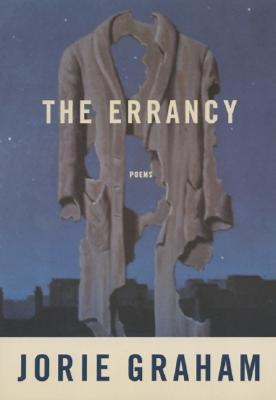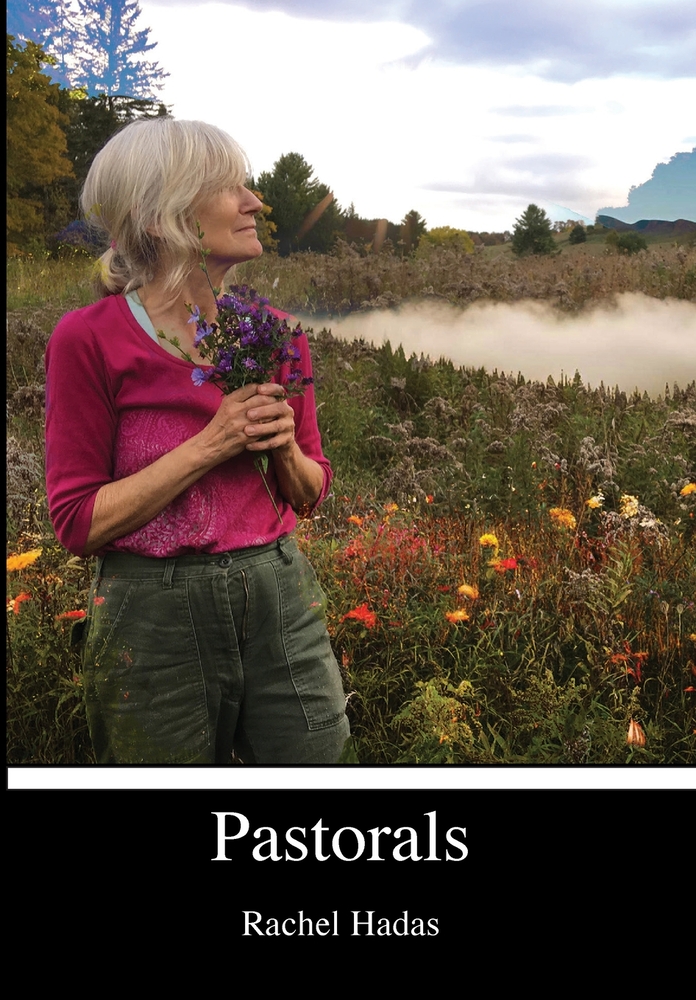Curated by KEI LIM
The summer months for The Common’s staff have been filled with wandering, around Western Massachusetts and beyond. Throughout this wandering, we’ve carried books which roam themselves, where relationships parallel the movements of the landscapes they traverse. Editorial Assistants BEN TAMBURRI, LUCHIK BELAU- LORBERG, and CLARA CHIU, and Applefield Fellow AIDAN COOPER recommend three novels and a poetry collection which brought them solace during these long, sweltry days.
Willa Cather’s O Pioneers!, recommended by David Applefield ’78 Fellow Aidan Cooper
Anyone who knows me knows I can’t stand audiobooks. There’s something about the pace or the performances that irks me, or maybe it’s something about being slightly insoluble in the story, while I drive, or fold laundry, or task my hands with whatever it is that isn’t turning a page. For me, reading has always been about following and, more importantly, re-following where the words before me lead; I flip here and there, underline and annotate, and generally meander through and indulge in the language’s turns. But because this summer has been one interwoven with travel, tugged along by the two yellow lines in our potholed New England roads, I decided (betraying my brand) to put O Pioneers! by Willa Cather through my car radio.
I couldn’t have picked a better book.
O Pioneers!—like much of Willa Cather’s work—is primarily concerned with land, with rolling Nebraskan prairies and windswept wheat stalks, and how human beings behave toward that land on which they rely. The natural world in Willa Cather’s voice grows over with a kind of surrealism, or perhaps a super-reality. A duck paddling in a pond is a memorial to the passage of time; winter snow doesn’t represent death nor sleep, but rather life at its most ferocious. With Cather, the world is flush with a force so powerful it can’t be predicted or contracted or even known, only guessed at and trusted in. A magic rushes from every stream, from every hog’s bark.
The narrative follows the Bergsons, a Swedish-American immigrant family whose crops are withering and whose poverty exemplifies a wider economic catastrophe in their small Nebraskan town. Near the beginning of the story, the bedridden patriarch John Bergson passes away from sickness, and his young daughter Alexandra inherits the farmstead with little hope of providing for the family. In this Divide of the “New Country,” immigrant families from Bohemia and France are stuffing their bags to return home or head northeast, and Alexandra’s brothers argue that the Swedes should follow suit. But Alexandra believes so deeply in the land’s richness, so intensely in the profitability of this place, that she remains. And she is awarded with prosperity and loneliness, for at least a little while.
Listening to an audiobook means you’re not wandering through the novel as much as you are being wandered through by the novel. A switch happens. New York City, for example, begins to feel more organic to me, as Cather recognizes how the trees know our secrets and are more fully resigned to living than humans are. The skyscrapers are eased away from their perceived independence from nature and become seamless with it. The poverty and volatility of the corn crop aches through every sewer grate and lopsided sidewalk slab. Even as the lights and noise dim, as I come back to the bush and bramble on the bottom edge of Vermont’s Appalachia, the grass and dark woods contain infinities my headlights can’t (and don’t want to) pierce. The road itself doesn’t feel so long. History shivers out, and the farms that have been worked for centuries are still being worked by hands that know the land well, and know it not at all.
If there is magic in nature, Crazy Ivar is the narrative’s single sorcerer. He lives alone on the top of the hill, tossing kernels to the larks and burrs passing through his pond between naps in his hammock. The townsfolk dub him “crazy” simply because he finds his religion in the clay and sod, because he believes pigs deserve feeding and washing and dignity as all other creatures do. In one of my favorite moments of the book, Emil, who is the youngest Bergson and is the embodied “hope” of the story, asks Ivar about the birds he feeds. While I don’t know the exact phrase—part of the horrific beauty of listening—Ivar answers that birds have roads in the air like we have on earth. That, maybe, the birds look down at our dirt and think it as unnavigable as we do the sky. And yet we drive. It’s miraculous.
O Pioneers! finished on the road to Amherst, and despite the tragedies and sadnesses that do end up reemerging in the Bergson family, the overwhelming sensation I get from being traveled by the novel is something sparkly and light. In a 1921 interview, Willa Cather said “[she] decided not to ‘write’ at all—simply to give [her]self up to the pleasure of recapturing in memory people and places [she’d] forgotten.” I feel that’s how you must approach this book: by giving yourself up to the pleasure of it. Maybe while behind the wheel. Maybe roll down the window and let the early morning air lead your attention to the maples, to the geese journeying their interstate above you, to the world remembering the parts of itself it wants so intensely to tell.
Virginia Woolf’s The Waves, recommended by Editorial Assistant Ben Tamburri
The Waves begins overlooking the sea, just before the sunrise, when the boundary between water and sky is indeterminable in the darkness. Light emerges; the two bodies separate. The two cycles that present themselves in this moment, the path of the sun across the sky and the lapping of waves across water, become motifs for the characters’ lives throughout the novel. The sun tracks their age from the birth of consciousness at dawn to old age at dusk, while the waves mimic the oscillations in their lives and mirror the sensation of reading this book, which is told almost entirely in six lapping soliloquies. These symbols, brazen and vast, seem to demand a proportionately vast subject to justify their use. Woolf earns this totalizing imagery by honing her focus on immutable aspects of the human condition, juxtaposing these immense planetary patterns with the undulations of inner worlds. The result is a sweeping exploration of consciousness, selfhood, loss, language, and friendship.
Woolf spends every moment focused on the interiority of her characters, six childhood friends, with minimal regard for traditional novelistic aspects like plot or setting. The text can be broken into nine sections, each opening with an ekphrastic description of the sun—its position indicating the stage of life the characters are in—before delving into their soliloquies. When apart, the characters explain their own musings, anxieties, epiphanies, and loves, and there is magic to Woolf’s strength of observation. My copy is heavily dog-eared, marked with passages where she put words to thoughts and feelings that dwelt deep in my subconscious.
The novel is strongest, however, when the characters are together. Around halfway into the book, the six principal characters reunite for a farewell dinner for their friend, Percival, before he leaves to go to India. The freedom of expression allowed by Woolf’s stream-of-consciousness prose and her abstract use of language, put together with the variety of perspectives given, offers this scene an incredible sense of dimensionality. In this moment, one character describes the centerpiece in a way that nicely summarizes the effect of reading this book: “There is a red carnation in that vase. A single flower as we sat here waiting, but now a seven-sided flower, many-petalled, red, puce, purple-shaded, stiff with silver-tinted leaves—a whole flower to which every eye brings its own contribution.” The Waves points toward the prospect of seeing the world beyond oneself; while reading, it feels like seeing the world sixfold, like seeing “a whole flower.” Woolf takes a narrative that is—or should be—mundane and passes it through a prism, expanding the possibilities of ordinary life to the limits of consciousness, which, for her, is near-infinite and richly colored. Small moments become round and potent, even when wrought with anxiety, envy, and suffering.
At its heart, this is a novel about loss. The death of Percival in India throws the identities of each of the characters into question. The second half of the text examines how they grieve, as the pressures of life drive them further from each other.
As of waves, these characters are individual in their shape and motion, but they are all of the same substance, part of the same sea. The same sun shines and sets on all of them. While this is hardly revelatory or the key takeaway of this novel, there is a presentation of human experience, loss, and consciousness in this text that seems to some extent universal, finding its relatability not in broad generalizations but in the smallest moments of life. Woolf’s depth of understanding and the poeticisms of her language are beautiful, making this a book I will return to throughout my life, in moments of difficulty, mundanity, and fulfillment alike.
Jenny Erpenbeck’s Kairos, recommended by Editorial Assistant Luchik Belau-Lorberg
In 2024, Jenny Erpenbeck’s Kairos (trans. Michael Hofmann) became the first book translated from German to win the International Booker Prize. I’d started the book that winter and struggled to finish it until about 12 hours ago.
Kairos begins in the present, as Katherina receives news that Hans, her six-year tryst from decades ago, is dead. Two boxes arrive on her stoop—a summary archive of their lives together corresponding to the two-part form of the novel. In fact, reading Kairos felt very much like the frame narrative—a painstaking dig through two heavy archival boxes, a mountain of places, names, dates, and events, only tangentially related to one another. “So much detritus,” writes Erpenbeck. Sure enough, the substance of this book seems to lie in some mental plane beyond the bulk of paper. One is compelled to squint. The nearly 300-page novel is ambitious in its scope, chronicling the slow disintegration of the German Democratic Republic, i.e., East Germany, in parallel juxtaposition with a slowly deteriorating romantic tryst with a 34-year age gap.
East Berlin, 1986: when they first notice each other on a bus, Katherina is 19; Hans is 52. The relationship between Hans and Katherina is slow, undulating, and obsessive. She’s a nineteen-year-old art student when she meets him. He’s a writer, older than her father and married, with an abiding sympathy for Marxism and the Communist government. He plays the old masters on vinyl and shows her his Picasso monographs. They first make love as the chorus sings a plea for mercy in Mozart’s Requiem, the funeral mass. Katherina’s dreadful devotion to Hans was never quite understandable to me—why she’s ready to prostrate herself beneath the weight of his life, his history, to become his secret lover just weeks after their first meeting. She isn’t his first extramarital affair, after all.
Some words are owed to Erpenbeck’s prose style. Fragments of dialogue (no quotes here) populate clever textual references and stream consciousness narration. The thoughts of one character meld into the thoughts of another, or float somewhere between their heads. At its best, particularly during the focal scenes, the writing is engrossing. Still, the erudite discussions of culture—one of the primary tonal modes—often felt tedious and, perhaps like Erpenbeck’s characters, a bit over-concerned with affect and the abstract. Thus, one of the book’s great strengths, framing personal narratives through history, takes a toll on the reader’s attention span. Much of the book is spent in or between cafes, bars, theaters, cinemas, and opera houses, as Hans and Katherina search desperately for a mutual language. The main drama of this book emerges from their inability to find one, or, if they do, to maintain correspondence despite the desperate stream of words between them.
The patterns of possession, liberation, and disintegration of Hans and Katherina’s relationship find a rough counterpart in the political upheavals occurring around them. The Berlin Wall crumbles as Katherina and Hans attempt to salvage a future from the ruined props of their romance. Erpenbeck paints the accession of East Germany by the West not in terms of historical progress, but in the tragic form—as the death of an ideal.
“But in the meantime, time pours into life, is braided into it, grows into it, entwines itself with it, but is never one thing: never indifferent, always taut, always strung between a beginning of which one is not aware…and an ending which is in the future, and hence in darkness.”
Jorie Graham’s The Errancy, recommended by Editorial Assistant Clara Chiu
Fittingly, I picked up Jorie Graham’s The Errancy by mistake. I had been looking for a book with a similar-sounding title, but this was a lucky error that introduced me to one of the most distinct and forceful poets I’ve ever encountered.
Drawing from religious notions of errancy, this poetry collection loosely follows a biblical arc from the Fall of Man to crucifixion, thematizing human error and desire through the idea of wandering. But for Graham, as mentioned in her endnotes, errancy is not a wrongful deviation but a necessary wandering: an introspective journey of a “knight-errant,” driven by erotic and epistemic desire. If errancy begins as wandering desire, then desire, in this collection, begins as a wandering gaze. Graham constantly inverts and subverts her narratorial perspective, and her poems feature speakers ranging from Pascal to a guardian angel. Through the frantic yet inert observations of each character, the act of bearing witness becomes a gateway for desire—the desire for intimacy, truth, and escape from the passivity of the gaze itself.
It’s the frustration of this gaze that first drew me to the strange, propulsive nature of the book. The first poem, “The Guardian Angel of the Little Utopia,” offers us a haunting description of a “yellow sky with black leaves rearranging it. / Wind rearranging the black leaves in it.” A scene of disturbance in this first line is reoriented by the following line, in which the disruptor is dissolved into its own image of disruption. Graham then situates this scene through a window of a house (“this is a pane, here”), and we are pulled behind yet another layer of glassy distortion. Perspective is peeled back, onion-like, until any sense of bearing becomes confused.
The syntactical convulsions of Graham’s writing capture the struggle of wandering through experience with only a tattered language to describe it. Her poems are accumulations and rearrangements, shot through with interruptions and digressions, and constantly striving toward some revelation. But the desires her narrators chase are perpetually suspended by the gap between perceiving and knowing. In this gap, underpinning the whole collection, lies a “vaguely hysterical” tenor (“Untitled Two”). This is where errancy thrives—the everyday, disoriented journey toward truth and other elusive desires. Yet this errant journey is “knightly.” There’s a heroism to this fallibility; to this ability and commitment to err.
While The Errancy can sometimes lean into an obtrusive and opaque language—more compact and abstract than Graham’s later works—it’s a delightful collection to tangle up in and wander through. It’s a delight to step back, as well, and consider each poem in isolation: a page with words rearranging it. My eyes, rearranging the words in them.







